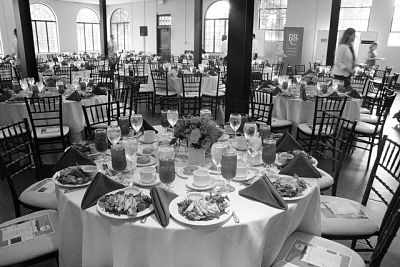Bible Study Lesson:
Luke 14:15-24
Q. What was the place, day and occasion of the parable?
- Sabbath (Lk 14:1)
- Jesus was invited by a prominent Pharisee. (Lk 14:1) (Jesus at house of Simon, the Pharisee)
- He (Pharisee) invited all the other Pharisees of the city, from what Jesus told him in Luke 14:13-14, he did not invite any poor or ‘less fortunate’ people.
- Jesus was closely watched for his actions, so it was not the most friendly invitation. Jesus also spent lot of time with the tax collectors (Jesus and Zacchaeus, the tax collector) and they always looked closely at his teaching and actions. But Pharisees often tried to find fault in him or trap him.
- The feast is supposed to be the place of joy, fun and relaxation, but this feast (Jesus at the Pharisee’ house) was different. There seems a constant tension and conflict between the guest (Jesus) and the invitees. (Lk 14:4,6)
- The parable of the Great Wedding Supper/Feast/Banquet is the third of the lessons, Jesus told them.
- First, was to illustrate humility, it was for the guests who who seek self exaltation.
- Second was to illustrate selflessness and seeking reward from Heaven, it was for the host.
- The third lesson goes into the most basic requirement of the feast – Who will be invited in the Kingdom of God?
- It is quite interesting that throughout bible, we repeatedly observe the idea that there will be food and feasts in the kingdom of God. (Check out Jesus Feeding the Five Thousand)
- Angels and God eat food (Gen 18:8, 19:3, Ex 24:11, Ps 78:25)
- Luke 22:16, 18, 30, Rev 2:7,17, Rev 19:7-10, Rev 22:2, 14
- Jesus ate with his disciples after his resurrection (Lk 24:40-43, John 21:12-14)
- Kingdom of God is not in-the-air-spiritual-world where spirits are floating around – meditating on God. It is a real, tangible, joyful place where we will enjoy the company of God and his people forever!
Q. What was the ‘Great Supper or Banquet’ like in Jesus’ parable?
- It was a ‘great’…big party.
- Many guests were invited.
- It was huge feast from the fact that there was a room even after all the poor and beggars of the city were invited!
Q. Why did they make excuses?
- The very fact that they made excuses, shows that they knew they were supposed to go to the feast.
- They had been invited before.
- They have been personally called by the Host.
- They could not deny on the face, so they made lame excuses.
Q. Were their excuses valid?
- First excuse: “I have just bought a field, and I must go and see it.”
- He must have seen the land before buying it. (It would be very silly to buy a land without seeing it.) He could have gone to see it next day.
- Second excuse: “I have just bought five yoke of oxen, and I’m on my way to try them out.”
- He must have tried the oxen before buying them.
- KJV translation says it was a ‘supper’ – mostly evening time. It makes their excuses even more lame, as it would be foolish to go to see field or oxen in the evening or night!
- Third excuse: “I just got married, so I can’t come.”
- He uses his relations to make excuse. He could have taken her along with him.
- All of them knew about the invitation, but they gave priority to other things in their lives, their refusal had similar undertone, “Let me finish my important things or relations, I will come some other time!”
- Our affection to our work or relationships often proves a stumbling block in our pursuit of God.
- How often have we heard, “I cannot come to God, because of my family, parents, wife or children, what will they react or think?” or “I cannot accept God’s invitation because of my business or job, they are far more important at this time!”
Q. What was the response of the ‘Master of the house’?
- Angry and furious for their insensitivity, neglect and ingratitude to him and his invitation.
- “not one of those men who were invited will get a taste of my banquet.”
- “Abused mercy turns into the greatest wrath.” – Matthew Henry
- He did not cancel the banquet. But he extended it to others.
- He invited all the poor, crippled, the blind and the lame from the streets of the town. They will be glad to attend such a great banquet.
- There was even more room, so he ordered his servants, “Go out to the roads and country lanes and make them come in.” He was pointing towards the broader community, the outsiders. (the Gentiles!)
- He told his servants to compel them, convince them, (not by force), but by force of love and graciousness of the ‘great host’, who has extended his invitation to everyone who is willing!
Application:
- What excuses do we make for our refusal to the God’s invitation?
- What are the things that hinders us from completely following Him?
- If we continue to neglect the voice of God, there may be time when we may loose the opportunity.
- Hebrews 2:3: “How shall we escape if we ignore such a great salvation?”
——————————
If you are blessed with this Bible study, I’d be very grateful if you’d help it spread by sharing it on Twitter, Facebook or your preferred social media network. Thank you!
—Amit Christian (BibleSEO Editor)
[sociable/]


5 replies on “The Parable of the Great Feast | Luke 14:15-24 | Bible Study”
[…] They rejected the traditions of the Pharisees and did not agree with them. (check out Jesus, Pharisees and Parable of Great Feast) […]
[…] (Also check, Parable of Great Feast) […]
[…] Amit presents The Parable of Wedding Feast | Luke 14:15-24 | Bible Study | Bible Study Lessons | Free Inductive St… posted at Bible Study Lessons | Free Inductive Study Guide, Topics & Tools. Inductive bible […]
This is very powerful topic please make a printable topic too it would be a blessings.
[…] Pharisees in Jesus’ time were the prime example of these. They thought that they were in light, but the love of God was not in them. […]